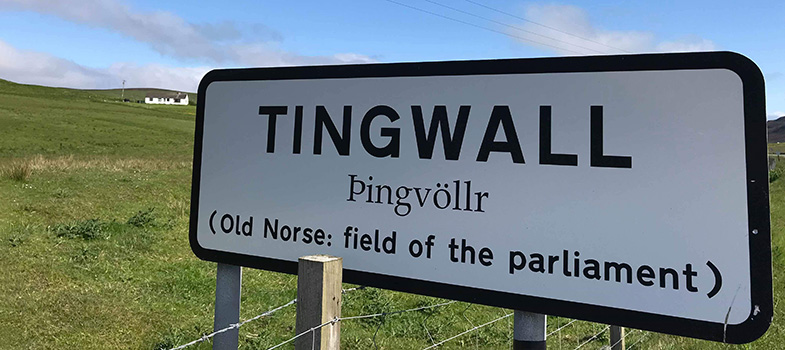Introduction
Why Scots?
by Sylvia Warnecke
Welcome to this course on Scots, one of the three indigenous languages, native to the British Isles, spoken in Scotland alongside English and Scottish Gaelic. Scots only received official recognition as a language in its own right in 2015, when the Scottish Government published its Scots Language Policy [Tip: hold Ctrl and click a link to open it in a new tab. (Hide tip)] . This also resulted in recognition by the UK government and the European Union.
As opposed to English and Gaelic, Scots is a non-standard language. This means that it does not have a written standard and has less ‘institutional support or sanction [compared to] a standard language. Like any dialect/language however, it has its own vocabulary and an internally consistent grammar and syntax; and it [is] spoken using […] a variety of accents’. As a non-standard language, Scots ‘has historically been stigmatised, and a debate continues about the extent to which non-standard [use of Scots] should be encouraged, and even simply tolerated, [e.g.] in education’ (‘What is the difference between standard and non-standard languages? Pal, 2018).
When exploring this debate in depth throughout this course, you will become aware that the story of Scots can be told in two versions: the official history of Scots as told through policy changes, and the ‘lived experiences’ of Scots-speaking people.
Despite differing points of view, Scots remains an essential part of Scotland, its history, culture and identity. In accordance with this, the Scots Language Policy published by the Scottish Government in 2015 outlines the reasons why it is important to engage with and promote the Scots language:
Scots is an essential element of the culture and heritage of Scotland. For many of us, it is a familiar aspect of our song, poetry and literature and a recognised feature of how we express ourselves in our community life. The Scots language is only spoken within Scotland, and it is not used anywhere else in the world by a community of significant number or extent. Therefore, steps need to be taken within Scotland to ensure its preservation.
The Scottish Government will promote and support Scots, and encourage its respect and recognition in order that, what for many is the language of the home, can be used in other areas of Scottish life.
This course aims to contribute to realising the vision outlined in the Scots Language Policy (2015) and most recently the Scottish Languages Act (2025). This Act received Royal Assent on the 31st of July 2025 enshrining it in law, which means that Scots, for the first time in recent history, has official status as a language in its own right in Scotland.
This has significant implications for the role/status of the Scots language in education and across wider society. The Government, in collaboration with diverse stakeholders, have set out to develop a dedicated Scots strategy designed to realise the ambitions of the Act to secure survival of the Scots language for future generations.
